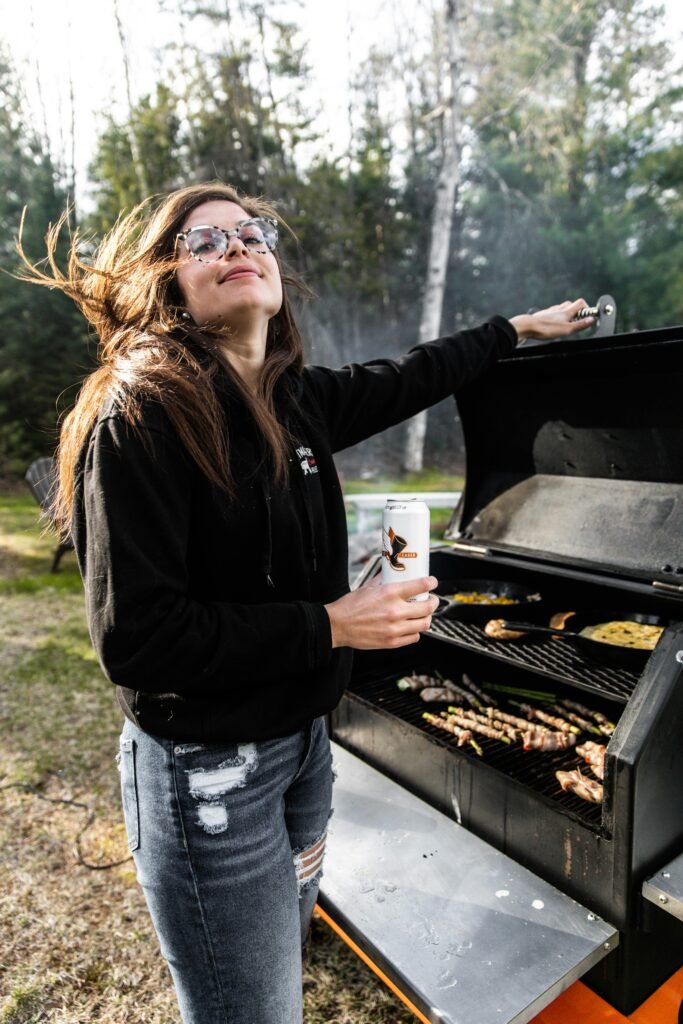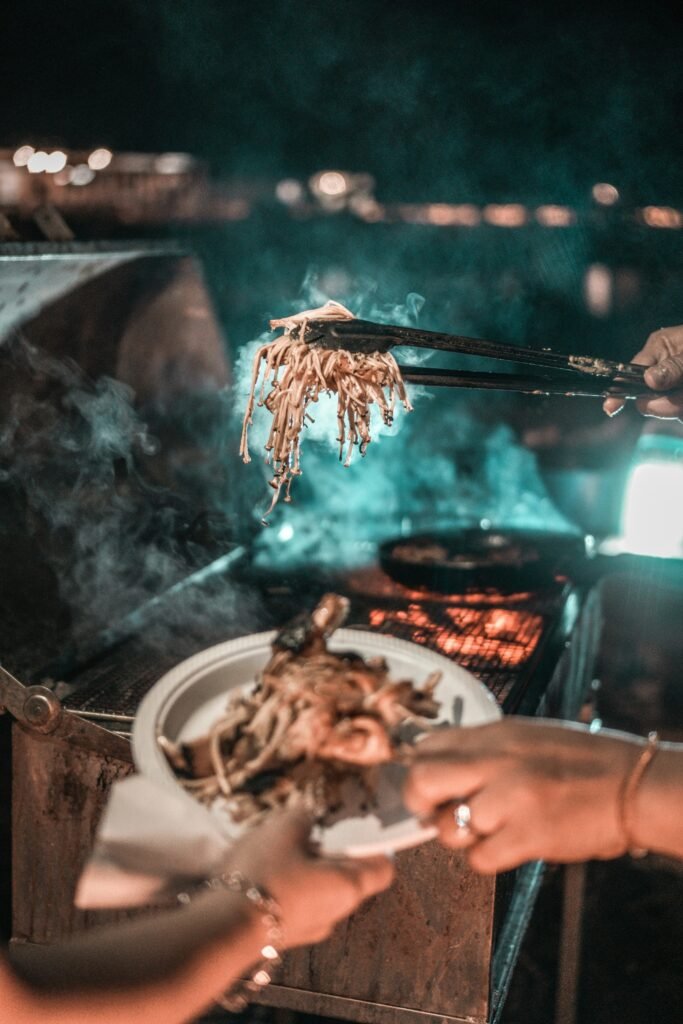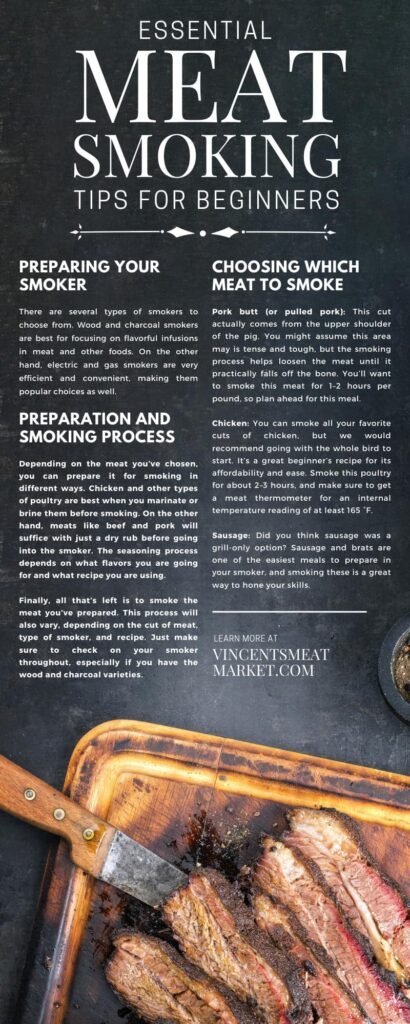Is there anything more satisfying than the smell of a perfectly smoked piece of meat wafting through the air? We think not. As lovers of all things BBQ, we know there’s a magical alchemy that happens when meat, smoke, and seasoning come together. But, if we’re being honest, it’s the rubs and marinades that lay the foundation for that deliciousness. Here at Simply Smoked Foods, we’re on a mission to unravel the secrets behind these flavor enhancers and help everyone from novices to pitmasters perfect their smoking game.

This image is property of images.unsplash.com.
Why Rubs and Marinades Matter
Before we get too ahead of ourselves, let’s chat about why rubs and marinades are so important. Have you ever tried a plain steak? Sure, it can be juicy and satisfying, but without seasoning, it lacks that “can’t-stop-eating” quality. Rubs and marinades give our food depth, character, and let’s be real, an undeniable charisma. They’re like the backstage crew of a theater production—they might not be in the spotlight, but without them, the show wouldn’t go on.
Rubs: The Dry Sidekick
Rubs are dry mixtures of spices and herbs that stick to the surface of the meat. Think of them as the tasty armor your meat wears before going into battle with the smoker. Rubs enhance flavor by adding a crust that locks in juices and forms that all-important bark on the outside. They’re a great way to get that deep, intense flavor we all crave within just a few steps.
Marinades: The Flavor Bath
On the other hand, marinades act as a tenderizing bath of liquid flavor. These mixtures typically include oil, acid (like vinegar or citrus), herbs, and spices. Marinades work their way into the surface layer of the meat, ensuring each bite is as flavorful as possible. If rubs are the armor, then marinades are more like a spa treatment, nurturing and infusing the meat with goodness.
The Basics of Making Your Own Rubs
Creating your own rubs can feel like mixing a love potion in a kitchen cauldron. There’s a certain alchemy involved, but the great news is that there aren’t many wrong ways to go about it. A good rub typically comprises four key components: salt, sugar, spices, and herbs. Each plays a vital role in flavor development and texture formulation.
Salt: The Foundation Rock
Salt is a magical ingredient; it enhances flavor and retains moisture in the meat. A general guideline is to keep it balanced—not too little to miss out on its benefits, but not so much that you could build a salt lick. We often use kosher or sea salt for best results.
Sugar: The Caramelization Companion
Sugar helps create that beautiful caramelized crust on your smoked creations. Brown sugar is a favorite because it caramelizes nicely and has a deep molasses flavor, but feel free to mix in others like turbinado if you’re feeling adventurous.
Spice: The Flavor Explosion
Spices are where the fun truly begins. Paprika, garlic powder, cumin, chili powder, and black pepper are our staples, but don’t shy away from adding a touch of cayenne for heat or some ground coriander for a citrusy touch. Choose spices that express what you want your meat to say.
Herbs: The Aromatic Touch
Dried herbs like oregano, thyme, and rosemary can bring an aromatic goodness to the mix. They’re like the supporting cast that ensures the spices have a strong and vibrant stage to perform on.
Crafting Marinades That Mesmerize
When whipping up your own marinade, think of it as a symphonic blend of four parts: fats, acids, seasonings, and additional add-ons. Each ingredient plays a part in flavor-building, tenderization, and moisture retention.
Fats: The Flavor Vehicle
Oil (we prefer olive or vegetable) is crucial because it helps dissolve fat-soluble flavor compounds from herbs and spices and carries them to the meat. It also ensures the meat stays moist during its spa day.
Acids: The Tenderizer
Acidic components like lemon juice or apple cider vinegar break down muscle fibers, helping to tenderize tougher cuts. Acids provide sharp, bright notes that balance richer flavors.
Seasonings: The Flavored Arsenal
This is where you get to have fun. Crushed garlic, minced ginger, soy sauce, or hot sauce can transform your marinade into a powerful flavor bomb. The key is to harmonize flavors that complement the main protein.
Additional Add-ons: The Secret Weapons
Feel free to toss a few aromatic ingredients into the mix—think bay leaves, sliced onions, or smashed lemongrass. These extras are like the secret weapons that give your marinade its mysterious edge.
Applying Rubs and Marinades: Getting Hands Dirty
With your rubs and marinades prepared, it’s showtime! Applying rubs and marinades effectively can be as important as the concoction itself. How you use these mixtures can transform a good smoking session into a gastronomical delight.
Rubbing It Right
For rubs, generously coat your meat a couple of hours, or even the night before smoking. The idea is to create a flavorful crust, so make sure every nook and cranny is covered. If you’re in a hurry, 30 minutes can also make a difference, but letting it rest longer will maximize the flavor.
Tip: For optimal seasoning adhesion, pat your meat dry with paper towels before applying rubs.
Marinating Like a Pro
For marinades, we dunk meat in the marinade mixture and let it soak in all that flavor—a minimum of 30 minutes, but anywhere from 2 to 24 hours can impart serious flavor. Fish and seafood are delicate and usually require less marinating time, while heartier meats like beef can take on extended soaks.
Tip: If preparing a marinade with a lot of acid, keep marinating time shorter to prevent the meat from becoming mushy.

This image is property of images.unsplash.com.
Experimenting: Taking Flavors to Another Level
We’re big believers in the power of experimentation. Getting creative with rubs and marinades lets you discover tantalizing flavors tailored just for your taste buds. Plus, it injects fun into the process!
Building Your Flavor Profile
Start with a base of familiar ingredients and add twists with unique spices or herbs. Perhaps you’re in the mood for an Asian-inspired rub—consider adding a splash of sesame oil and some star anise. Next time, go southwest with some cumin, lime, and tequila.
Listen to Feedback
Cooking, much like writing or telling jokes (which we attempt as well), gets better with feedback. Ask family and friends to weigh in on the flavor. Engage in collective brainstorming to fine-tune your recipes.
Takeaway: Embrace Your Inner BBQ Wizard
So what are the key takeaways? We should boldly embrace the art of making our own rubs and marinades and remember it’s as much about self-expression as technique. Whether you lean toward spicy, sweet, savory, or all the above, allow your culinary creativity to run wild. As we tinker with flavors and experiment with combinations, we start to uncover an unexpected confidence that echoes far beyond the smoker. After all, life, much like BBQ, is best when savored slowly with a touch of smokiness and a lot of passion.
In short, the next time we find ourselves in front of the smoker, let’s arm ourselves with our trusty rub or marinade and become the masters of our own smoky domains.





